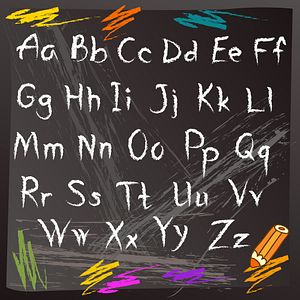When it comes to foreign language teachers, South Korea has made its choice: people from developing countries, regardless of how gifted they may be at teaching English as a foreign language, are not welcome, and no exceptions are made. Korean laws state that to teach at the English Program in Korea (EPIK) or Teach and Learn in Korea (TaLK) programs, applicants must be from one of these seven wealthy, mostly monolingual English speaking countries: Australia, New Zealand, the U.K., Ireland, South Africa, the U.S. or Canada.
While teachers at EPIK have incentives to renew their contacts as many times as they want, another program under the Comprehensive Economic Partnership Agreement (CEPA) only allows teachers from India to stay in Korea one year before they must leave, and gives them lower pay. Teachers at the Chinese Program in Korea (CPIK) are only allowed to stay and teach in Korea two years before they must leave.
Teachers from the Philippines or other English-speaking Commonwealth countries have no program they can apply to, and despite a legal loophole regarding private schools (where the teacher’s country of origin is not specified), most advertisements for private schools specify that they want people from the seven wealthy, mostly monolingual English speaking countries.
Despite studies finding that bilingual people tend to be more sensitive to language use and are often better able to understand and explain the complexities of syntax, semantic nuances, and cultural pragmatics, most Koreans believe that when speaking two languages, one gets in the way of the other. When Koreans send their children to study English abroad for several years (there are 200,000 such Korean families, mostly living in New Zealand, the U.S., the U.K., Canada and Australia), parents often make sure that their children have no Korean friends and have as few opportunities to speak Korean as possible.
Bilingual English speakers from the Philippines, Singapore or Malaysia are excluded from teaching English in Korea because their English is deemed “unauthentic,” despite experts claiming that the English language is a deterritorialized language, meaning that, unlike Korean for example where authentic language use tends to be restricted to the Korean Peninsula, English has no great territorial restrictions to its authentic use.
By Korean standards, “authentic English” is necessarily that which is spoken by monolingual residents of wealthy countries. There have been several reports that Korea tends to have a high preference for Caucasian teachers. Minority teachers can find jobs, though many have complained about blunt comments from recruiters or private schools regarding the fact they don’t hire minorities.
Ethnic Koreans who are bilingual tend to either be rejected because monolingual teachers are preferred, or are given preferential treatment in recruitment because schools seek teachers who can speak Korean. Non-ethnic Koreans who speak Korean often get no preferential treatment, and are often told to hide from their students the fact they can speak the language.
In a country home to 30,000 native English teachers that spends $15 billion a year on education, often paying teachers $2,000 or more per month and providing free housing, many highly educated teachers from ineligible countries seek jobs in Korea, only to find to their disappointment that there are legal barriers to getting jobs as English teachers.
With Turkey and China also passing laws that only teachers from select countries can teach English in their countries, groups opposing such laws are becoming increasingly vocal on the internet. Though they often refer to themselves as “non-native English speakers,” many of them are in fact native speakers from Commonwealth countries, as linguists define a native speaker as someone who made social usage of a language during the critical phase between the ages of 8 and 12 when a language is learned.
Another group of teachers that is increasingly vocal on the internet about these laws are prospective teachers from war-torn Middle Eastern countries, who often have qualifications to teach English but clearly speak it as a second language. These people see teaching English abroad as one way to escape the ongoing conflicts in their countries.
As to South Korea, there are no signs that the law specifying which select countries’ citizens can teach English will change, despite formal protests from diplomats residing in Korea. The debate about whether Korea should emphasize qualifications rather than citizenship has been going on for years, but as there has been a 10 percent decrease in the number of foreign English teachers between 2012 and 2013, employers are increasingly looking into qualifications as the competition for jobs gets tougher. While South Korea may not get rid of its citizenship requirements, qualified teachers from ineligible countries hope such requirements will not spread to other English teaching hotspots such as Vietnam, Chile or Russia.

































